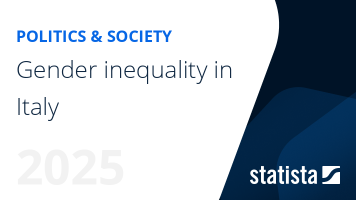The fight for women’s rights in Spain has been a decades-long process. Since Marie Gouze’s “Declaration of the Rights of Woman and of the Female Citizen” in 1791, many women, and many men, have fought to dismantle outdated gender roles. One of the major steps was women’s suffrage, which was introduced for the first time in Spain in the Constitution of 1931 during the Second Republic, with the help of Clara Campoamor.
The pay gap
Thanks to figures like Campoamor, women in Spain currently take an active role in society, holding high positions in both the government and private sector. However, inequalities still persist. This is easily reflected in salaries: according to the latest data, the
average gross salary of a woman was 81.64 percent of that of a man's. The difference was even larger in the case of women's most frequent salary, which was 74 percent that of their male counterparts.
Furthermore, the pay gap also varied across sectors and working schedules. Regarding the latter, while men working
full-time earned an average of 30,740 euros annually, women had average salaries of 28,185 euros in 2021. For
part-time positions, men had salaries, on average, 1,238 euros higher. As for sectors,
men earned more than women in the vast majority of economic activities. Health and social services, wholesale and retail, motor repairs, and professional, scientific and technical activities registered the largest gender pay gap.
Feminization of poverty
According to the latest studies, women are in general at a
higher risk of poverty and social exclusion than men, particularly those with low
education levels and above
30 years of age. Lower labor force participation rate, lower salaries and higher participation in sectors with part-time and precarious jobs are some of the factors behind the incidence of poverty among women. Another reason is that single-parent households are at a much higher risk of poverty, and the majority of
single-parents households in Spain are led by single mothers.
The Gender Gap Index
Researchers have many metrics to measure social and economic differences between men and women. The World Economic Forum has created the
Global Gender Gap Index for this very purpose, analyzing these aspects in 146 countries, including Spain, which generally ranks higher than most nations. However, deeper analysis suggests poor
economic empowerment, with a large disparity in wage equality for similar work and scarce presence of women among legislators, senior officials and managers. The country fares better in the area of
educational attainment due to the large number of women enrolled in all levels of education.
This text provides general information. Statista assumes no
liability for the information given being complete or correct.
Due to varying update cycles, statistics can display more up-to-date
data than referenced in the text.
































